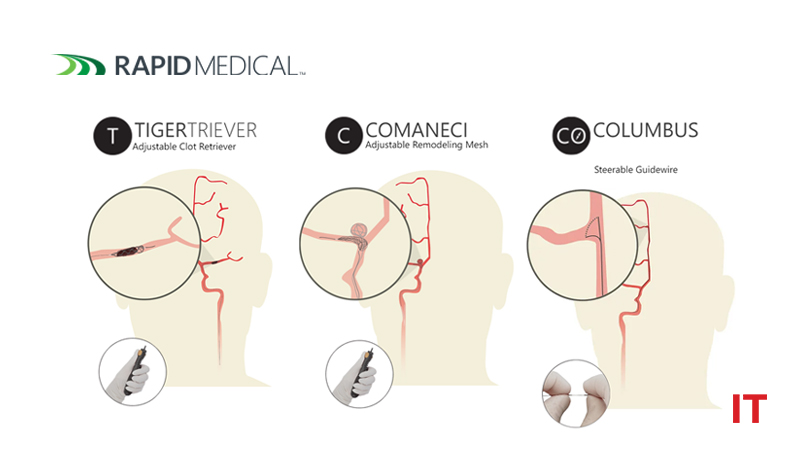Rapid Medical, a leading developer of advanced neurovascular devices, is the 2023 Society of Vascular Interventional Surgery (SVIN) Honoree. At the annual meeting, new research shows that the success rate of first-pass treatment of patients with complex ischemic stroke using the Tiger Triever™ device is very high, even in patients with underlying intracranial arteriosclerosis (ICAD ) . We announced the following data. Additionally, the complication rate was negligible.
“When patients with ICAD develop a stroke, it is very difficult to treat and often requires rescue therapies such as stents,” said lead author Dr. Edgar Samaniego, an endovascular neurologist at the University of Iowa . states. “We have achieved very high treatment success rates and long-lasting results with Tiger Triever alone, which are not seen with any other device. We call this stentplasty.”
This sub-analysis, published in the Journal of NeuroInterventional Surgery , presents results from the prospective TIGER trial 1 . 78% of ICAD patients achieved reperfusion without additional intervention, and 47% achieved recanalization with first pass. 2 These results compare favorably with studies using other devices in this specific patient population. Moreover, the results of Tiger Reaver in ICAD are comparable to those previously expected only in patients without ICAD. Another advantage of the high first-pass success rate is that the surgical time is very short. Median time from groin to reperfusion was 22 minutes, the fastest outcome reported in a prospective randomized trial. Additionally, 50% of these patients had good clinical outcomes with mRS 0-2 after 90 days.
Unlike traditional stent retrievers, the Tiger Retriever device has a special ability to control radial dilation after positioning in the cerebral artery, providing unique advantages for ICAD patients. In addition to successful reperfusion, the Tiger Triever effectively dilated the artery and as a result, no patient required permanent stent insertion. Additionally, because the device can be deflated to minimize damage to plaques and arteries during removal, patients in the study could experience symptoms such as symptomatic intracranial hemorrhage (sICH), vascular dissection, and embolic complications. , we were able to avoid complications typically seen in ICAD patients.
“Doctors now have a better and faster treatment option for patients with severely narrowed arteries,” said Dr. Samaniego. “The Tiger Triever has higher reperfusion success rates, fewer complications, and also provides the necessary angioplasty effect compared to previous studies using other mechanical thrombectomy devices.”
SOURCE: Businesswire


































